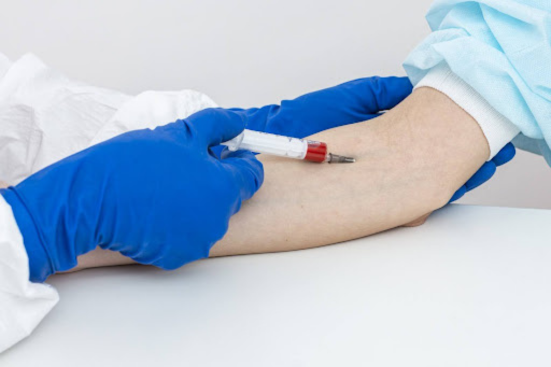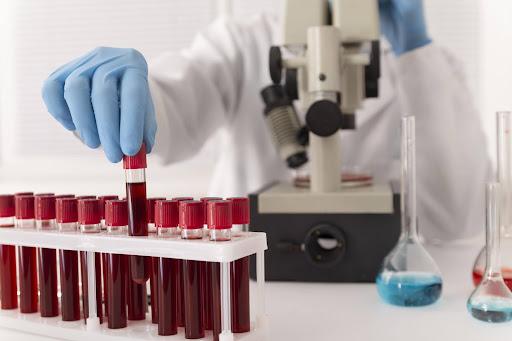A Dietary Guide to Gifting Your Fatty Liver a Long Life

Liver Function Tests: A Handy Guide to Everything You Need to Know
15 Mar 2024
From our everyday meals to the pills we occasionally take for that throbbing headache, our liver plays a major role in processing everything we put into our bodies. Ensuring its health is critical, and there’s no better way to do that than through a set of simple blood tests collectively known as Liver Function Tests (LFTs). But why is this so important? What exactly do these tests measure? And how can we interpret the results? Read on to find out!
Liver function tests are designed to measure various substances produced by the liver in our blood—enzymes, proteins, and bilirubin, among others. These serve as effective indicators of liver function, shedding light on any abnormalities. While it may sound scary, understanding the liver enzyme levels in your blood and their role is simpler than you think.
So, let’s delve deeper into these tests, demystifying their purpose and learning how you can prepare for them, understand them better, and interpret their results. After all, knowledge is power when it comes to managing our health.
Your Liver’s Report Card: Understanding Liver Function Tests
Picture the liver as a dedicated multitasker in your body’s organisation. This hardworking organ is responsible for over 500 jobs, including detoxifying harmful substances and making proteins for blood clotting. So, naturally, it’s vital to keep tabs on how well it’s performing its duties. Here’s where liver function tests come into play.
Liver function tests are a band of blood tests that estimate the levels of enzymes, proteins, and bilirubin—products made by the liver. By checking these substances’ concentrations, doctors can judge liver health, signal any damage or inflammation, and track the progression of liver diseases.
The Ensemble Cast: Common Liver Function Tests
The most common liver function tests include:
- Alanine aminotransferase (ALT) and Aspartate aminotransferase (AST) are enzymes released into the blood when the liver is injured.
- Alkaline phosphatase (ALP) and Gamma-glutamyl transferase (GGT) are other enzymes examined that may signal blockages in bile ducts.
- Tests for proteins include Albumin, produced exclusively by the liver, and a Total Protein Test to measure albumin and all other proteins in the blood.
- Bilirubin testing measures levels of this yellowish substance formed during the breakdown of RBCs or red blood cells. Elevated Bilirubin levels might be due to liver diseases or conditions causing red cell breakdown.
A Simple Procedure: Preparing for Liver Function Tests

Preparation for liver function tests is minimal—no daunting prep work is required! A healthcare professional simply draws a small amount of blood from a vein in your arm. The collected sample then embarks on a journey to a laboratory for further analysis. The wait for results is relatively short, ranging from a few hours to a couple of days, depending on the specific lab.
Fun Fact: The morning of your blood test might be the only time you can skip exercising without feeling guilty, as strenuous activity may negatively affect the results!
Decoding Liver Language: Interpreting the Results
Interpreting the results of liver function tests involves comparing your recorded values against the standard ranges. These ranges differ depending on factors such as sex, body size, and even the lab that processed your test. For example, elevated AST and ALT levels could point to liver injury. However, considering the ratio of these enzymes can also help ascertain the type of injury—such as an alcohol-induced one.
Beyond Just Numbers: The Role of Liver Function Tests
Apart from their diagnostic role, liver function tests are often included in a comprehensive metabolic panel. As indicators of liver function, they find utility in screening for liver diseases or damage, monitoring disease progression or treatment efficacy, and checking for side effects of certain medications.
Remember, an elevated liver enzyme level is not an immediate red flag for liver disease. Your doctor might recommend additional testing to identify the cause, including imaging scans, a liver biopsy, or blood tests for specific viruses.
Summing It Up
In summary, liver function tests remain an essential tool in gauging the health of our livers and identifying any potential concerns. From preparing for the test to understanding and interpreting the results, staying informed about what these indicators for liver function signify for our overall health is crucial. Remember, it’s not just about the numbers; it’s also about understanding what those numbers reflect about your liver enzyme levels.
So, as we conclude this enlightening journey on liver function tests, let’s reaffirm our commitment to optimal health. At tatvacare.in, we’re dedicated to demystifying medical data and making it accessible and understandable for you. We encourage you to get in touch with us for any further queries or health-related concerns. Here’s to staying inquisitive and proactive about our health!

FAQs
Q. What is the best way to prepare for a liver function test?
A: Usually, you may be asked to fast for a few hours before the test to ensure accurate results. Certain medications might also interfere with the results, so disclose any prescriptions or over-the-counter drugs you’re taking.
Q. What are the risks associated with liver function tests?
A: Generally, liver function tests are safe and carry minimal risks. Some people may experience slight discomfort or bruising at the puncture site. Very rarely, there could be fainting or lightheadedness due to blood withdrawal.
Q. How long does it take to get the results of a liver function test?
A: The time it takes to get your liver function test results can vary depending on the laboratory and its workload. Generally, you can expect results between a few hours and a few days.
Q.Can I continue my regular diet and medication before a liver function test?
A: Some foods and medications can affect liver enzyme levels and thus may need to be avoided. Consult your doctor for better clarity.
Q. How can I interpret my liver function test results?
A: Your doctor will explain the results of your liver function test in detail, as interpretation requires medical training.

Medically reviewed by
Dr. Krunal Chaudhari 
MBBS, MD
Recent Blog
- CDSS – Revolutionising Diagnosis with AI-Powered Clinical Decision Support System
- Handwritten to Digital in Seconds: SmartSync Converts Prescriptions Instantly
- Voice Rx by TatvaPractice: A Smarter Way to Digitise Prescriptions
- PCOS Facts vs. Myths: Get the Right Information
- The PCOS-Insulin Resistance Connection: Unlocking Solutions for Better Health
Archives
Categories
- Asthma (20)
- Diabetes (15)
- Fatty Liver (20)
- High Blood Pressure (2)
- High cholesterol (2)
- Hypertension (2)
- Insulin Resistance (1)
- Obesity (8)
- PCOS (6)
- TatvaPractice (11)
Let’s Connect
Quick contact




